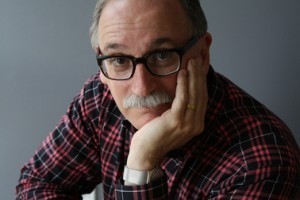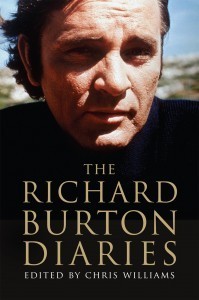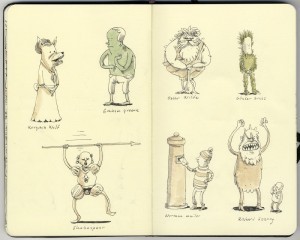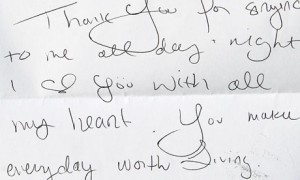The Paris Review's Blog, page 881
October 17, 2012
Wordy Joyce, Papal Deals
Word portraits by artist John Sokol.
Thanks to a new ruling, a massive Kafka archive could soon be made public.
Pope Benedict has inked a book deal; no word yet on the figure.
Hilary Mantel has won her second Man Booker Prize for Bring Up the Bodies.
Obviously, Johnny Depp has his own imprint.
October 16, 2012
When Are You Gonna Get Over This: An Interview with Jim Shepard
Jim Shepard is the author of six novels and four short-story collections. In a departure from the typical trajectory of the American writer, however, his novels came first: graudally, he has, by his own admission, become more and more drawn to the short-story form. And what short stories! His subject choices are bold, strange, almost stunning in their range: the love story between two gay engineers on the Hindenburg; a Roman scribe sent to man Hadrian's Wall; the inventor of the Godzilla epics. His narrator might be the Creature from the Black Lagoon or Aeschylus at the Battle of Marathon or John Entwistle or perhaps a British explorer searching for a sea in the middle of the Australian desert. A lot of his stories are set in the world of sports—baseball players moving to Cuba during Castro's revolution, football players, mountaineers, a Yugoslav soccer player who moves to Ajax Amsterdam during the sexual revolution. And yet, despite such a range of susjects, each story manages to feel true, the voice credible, the world evoked uncannily, so much so that the reader often feels like he's stumbled upon these character's private diaries.
I recently edited and translated a collection of Jim's stories for an Italian publisher, and I decided to focus on those stories that had, more or less, some sort of connection to sports. The reason for that is simple: I have never read stories set in that world that manage to evoke it as well as Jim's. Also: I like sports. I called Jim up on Skype, from my ex-girlfriend's kitchen in Milan, Italy, and asked him a few questions about short stories and sports.
In translating your stories, I started resenting the way you write, because it forced me to do so, so, so much technical and historical research, decipher so much lingo and jargon. It really was the most laborious translation I’ve everdone, and it really hit me just how much work you put into a single story.
Yes!
A different writer would take that kind of work and make a novel out of it. He’d make that much groundwork last three or four years.
My friend Ron Hansen, the novelist, always says to me: “You’re crazy! You know, you did eight months of research and all you got out of it is a story. I would get a four-hundred-page novel and make a lot more money.” But part of it is also that, you know, it doesn't feel like drudgery to me. If I’m reading about these subjects, it’s because I’m strange enough to want to be interested in them anyway. So the idea that I have to read yet another book about volcanology doesn't make my heart sink. It makes me think, “Oh, good, I get to do that!” You know?
In Which Richard Burton Discusses Poetry
Friday, October 20, Capo Caccia
On Sunday morning I read poetry at the Union with Wystan Auden. He read a great deal of his own poetry including his poems to Coghill and MacNeice. Both very fine conversation pieces I thought but read in that peculiar sing-song tonelessness colourless way that most poets have. I remember Yeats and Eliot and MacLeish, who read their most evocative poems with such monotony as to stun the brain. Only Dylan could read his own stuff. Auden has a remarkable face and an equally remarkable intelligence but I fancy, though his poetry like all true poetry is all embracingly and astringently universal, his private conceit is monumental. The standing ovation I got with the ‘Boast of Dai’ of D. Jones In Parenthesis left a look on his seamed face, riven with a ghastly smile, that was compact of surprise, malice and envy. Afterwards he said to me ‘How can you, where did you, how did you learn to speak with a Cockney accent?’ In the whole piece of some 300 lines only about 5 are in Cockney. He is not a nice man but then only one poet have I ever met was—Archie Macleish. Dylan was uncomfortable unless he was semi-drunk and ‘on.’ MacNeice was no longer a poet when I got to know him and was permanently drunk. Eliot was clerically cut with a vengeance. The only nice poets I’ve ever met were bad poets and a bad poet is not a poet at all—ergo I’ve never met a nice poet. That may include Macleish. For instance R. S. Thomas is a true minor poet but I’d rather share my journey to the other life with somebody more congenial. I think the last tight smile that he allowed to grimace his features was at the age of six when he realized with delight that death was inevitable. He has consigned his wife to hell for a long time. She will recognize it when she goes there.
From The Richard Burton Diaries, edited by Chris Williams, Yale University Press, 2012. Copyright © 2012 Swansea University.
Family Fortunes
One recent weekday afternoon, I left my apartment in Los Angeles, walked three blocks, and bought a movie ticket. I was at liberty to see a movie in the middle of the day because I had just left my job, having decided to spend some time not “working,” but writing—and I needed to see a movie because the writing was not working. There was no writer’s block, per se: words trickled out, they were just terrible in that first-draft-fiction way. Compounding this writerly self-doubt was the uncomfortable feeling that I’d invoked a huge privilege—namely, a class privilege (my household could get by for a time, our dogs’ pampered existence intact, without my salary)—to produce a Word document full of tired characters and clichés. Worse still was the suspicion that I was, myself, a tired character and a cliché: too neurotic and guilt stricken to enjoy this temporary luxury and try to do something good with it.
And so, off to the movies. I’d just read about the documentary The Queen of Versailles, said to be the “riches-to-rags” story of a billionaire time-share mogul and his wife forced to cease construction on their new ninety-thousand-square-foot home (the largest in America, once finished) when the economy collapsed. So I chose that one: it was well reviewed, prize winning, and very much of the broader world, a good counterweight to the swimmy interiority of novel drafting. I was also drawn to it because it sounded like the kind of movie I would see with my dad back when I lived in New York; he and I would meet up at the Film Forum after work, usually for some edifying progressive documentary—The Trials of Henry Kissinger or Bush Family Fortunes, say—the significance of which we would then gnaw on over pad Thai afterwards. I liked films like this, and talking to my dad about them, because they helped me make sense of the world, and because they drew clean, reassuring lines in my brain between justice and injustice. Which is to say, walking into The Queen of Versailles, I expected to see a movie about some greedy one-percenters getting their comeuppance and feel good about that.
In a sense, I did. David Siegel, the time-share king, made his billions by seducing people into buying time-shares they can’t afford, largely by convincing them that the purchase will help them feel less like a working stiff and more like a rich person. This isn’t an interpretation but a matter of record—we see his sales force in action, as director Lauren Greenfield captures them talking strategy, luring people to sign on the dotted line, and, later, trying to extract payments from distressed customers after the housing bubble bursts. At that point, when banks refuse to lend to David and he becomes a “victim” of the system from which he has profited so outrageously, we savor the irony all the more because, well, David is a schmuck. He brags to Greenfield about having helped deliver the 2000 election to George W. Bush through “extra-legal” means (the Siegels live in Florida), but won’t elaborate. He channels his philanthropic impulses toward beauty pageants (Jackie Siegel, his wife, is a former beauty queen); a big patron of the Miss America organization, Siegel exudes lecherous entitlement when chatting up the young contestants at a party at his and Jackie’s home. When the Siegels fall on what passes for hard times—droppings from their countless white fluffy dogs pile up around the house, their domestic staff having been reduced to one; Jackie starts shopping at Walmart; there is suddenly talk of an “electric bill”—David becomes irritable and withdrawn, generally making life miserable for Jackie and the couple’s eight children. Partly because we know that the Siegels will always land on padded feet—even if their absurd imitation-Versailles mansion does slip from their grasp, a question that remains unresolved by the end of the film—it’s easy to root against David.
Jackie is a more complicated case. Read More »
The Long and Short of It
Adorable, literal interpretations of author names by illustrator Mattias Adolfsson.
“I know I said that if I lived to 100 I’d not regret what happened last night. But I woke up this morning and a century had passed. Sorry.” Geoff Dyer, Jackie Collins, A. M. Homes, and others attempt the 140-character novel.
Speaking of brevity, Ian McEwan declares that the novella is the superior written form because “you can hold the whole thing structurally in your mind at once.”
Qin Dynasty book burnings.
Patti Smith: “I remember the very first time I saw Kristen Stewart and Rob Pattinson together, when they were younger, and I thought, Those two kids could have easily played us [in Just Kids] when they were first starting. There’s something in his eyes. And Robert [Mapplethorpe] was also a bit shy, and a bit stoic. Kristen has a very special quality. She’s not conventionally beautiful, but very charismatic.”
October 15, 2012
What Would Happen if the Three Jonathans Rewrote Mitt Romney?
Following Romney’s strong performance at the first presidential debate, we found ourselves wondering why the candidate did not deliver a more stirring speech to the Republican National Convention. The logical next step was to ask: what would happen if we gave his original text to several contemporary writers for a rewrite. The following is an approximation. —A.A.
Romney:
Four years ago, I know that many Americans felt a fresh excitement about the possibilities of a new president. That president was not the choice of our party, but Americans always come together after elections. We are a good and generous people who are united by so much more than what divides us.
When that hard-fought election was over, when the yard signs came down and the television commercials finally came off the air, Americans were eager to go back to work, to live our lives the way Americans always have—optimistic and positive and confident in the future.
That very optimism is uniquely American.
It is what brought us to America. We are a nation of immigrants. We are the children and grandchildren and great-grandchildren of the ones who wanted a better life, the driven ones, the ones who woke up at night hearing that voice telling them that life in that place called America could be better.
Lethem:
Four years ago before our last presidential election, Americans feeling fresh excitement about a new president, after late summer, before the leaves fell off the trees. Read More »
In Search of Lost Time
It is, all told, a strange summer. Down the street from my apartment, children play inside of plastic bags. Glaciers shed ice the size of Manhattan. Scientists find that sharks smell in stereo. Horoscopes are cited as primary sources at social gatherings. Restlessness flows. For three consecutive nights I dream exclusively of vacuuming a garden snake.
On a Sunday afternoon I detour from fondling impractical kitchenware at Pearl River Mart and go where I go when I need to stop time: to visit my grandfather at his loft on West Broadway. He is eighty-four, a sculptor, a Southerner, tall and round bellied, deaf in one ear from an adult case of mumps. His face bears an impressive mustache and bifocals as large and wide as safety goggles. Alzheimer’s is smoothing the lines of his memory, a stone turning in water.
He has lived in this apartment since 1970, and from what I can tell it has hardly changed; it could easily be a soundstage from an early Woody Allen film, with its leather seats shaped into dripstones by decades of party guests, its ceramics and abstract art, the copy of Joe Brainard’s I Remember that had taken up permanent residence in the bathroom long before it carried any personal symbolism. The front half of the loft is still a studio, with a meticulously labeled array of tools and materials, despite the fact that these days my grandfather is physically, psychically unable to work. For the last few years I’ve kept keys under a conditionality: just in case. In this case it only means that I let myself in.
“What are you up to today?” I ask my grandfather, to which he replies, “Just trying to have a brilliant idea.”
Babyish Handwriting, Malarkey
Is Spotify for books coming?
University of Missouri Press gets a reprieve!
Abraham Lincoln: the inexhaustible subject.
Speaking of the presidency: a guide to malarkey.
“A bit sad and even a little babyish”: a handwriting expert analyzes the penmanship of Lady Gaga, Barack Obama, and Prince William, among others. (Spoiler: the quote refers to the leader of the free world.)
October 12, 2012
What We’re Loving: Bourbon, Poetry, and Mead
This week, Lorin and I made a whirlwind trip to Houston, where we had the chance to visit the wonderful Brazos Bookstore. While browsing their well-curated cookbook selection, my eye was caught by a volume called 101 Classic Cookbooks, curated by the Fales Library. Published by Rizzoli, it is as much an art book as a recipe primer (although there are plenty of those too, from such luminaries as Julia Child and Alice Waters). Images of antique receipt books and mid-century food art make for great cultural history. —Sadie Stein
Charles Portis is that rare literary legend too few have read—me included. When I spotted a copy of his 1979 novel, The Dog of the South, on a friend’s shelf, I knew it was time to find out if the rumors are true. They are. There’s a hopped-up futility to this tale of a man in pursuit of his wife and her lover south of the border, and when Ray’s surrender is set off against small moments of truculence, it’s comic gold. One passage in particular, of Ray trying to outrace another car in a total clunker, reminds me a bit of the pie-fight scene in Gravity’s Rainbow, which was published only six years before; though the setup is far less surreal, it’s rife with absurdity:
I’ve had enough of this, I said to myself, and I was just about ready to quit when the exhaust system or the drive shaft dropped to the highway beneath the Chrysler and began to kick up sparks. Jack was down for the day. I shot over a rise and left him with a couple honks. Harvest yellow Imperial. Like new. Loaded. One owner. See to appreciate. Extra sharp. Good rubber. A real nice car. Needs some work. Call Cherokee Bail Bonds and ask for Jack. Work odd hours. Keep calling.
—Nicole Rudick
Walker Percy, the National Book Award winner and Paris Review interview subject, has a delightful and underappreciated piece called “Bourbon, Neat” on a topic near and dear to my heart. Percy claims that bourbon does for him what a bite of cake did for Proust and goes on to expound an aesthetic approach to bourbon in which the chief pleasure comes from, “the little explosion of Kentucky U.S.A. sunshine in the cavity of the nasopharynx and the hot bosky bit of Tennessee summertime,” words that make this Kentuckian’s breast swell with pride. More importantly, this piece provides a ready-made, literary-minded rebuttal to accusations of alcoholism. A defense, I imagine, that might prove useful to more than a few of our readers. —Graham Rogers
I recently picked up The Open Door: One Hundred Poems, One Hundred Years of Poetry Magazine, which was released in celebration of Poetry Magazine’s centennial (thanks to Sam Fox for lending it to me!). If you need to be reminded of the incomparable poems that the magazine published first in its pages (including those of Wallace Stevens, T. S. Eliot, and Sylvia Plath), read excellent poetry by an author you might not have discovered yet, or simply remember why poetry is worth loving, this is the book to turn to. I recommend getting together with a few friends, taking turns opening to a poem at random, and reading out loud—knowing that you (and they) won’t be disappointed. —Emma Goldhammer
According to Robert Louis Stevenson in “The Secret of the Heather Ale,” the last Pictish king chose to have his son put to death and be killed himself rather than reveal the secrets of his favorite beverage to an invading Scottish army. You could try and re-create the ale that “Was sweeter far then honey, / Was stronger far than wine,” yourself this weekend by boiling five ounces of flowering heather tops (any color, although white is allegedly the luckiest) and boil in a gallon and a half of water. After an hour add seventeen pounds of honey and boil for a further half hour, before leaving the mixture to rest for another thirty minutes. Strain into a seven gallon wine fermenting bin and fill the bin to the top with cold water. Stir through one sachet of champagne yeast, skim off any foam that forms on the surface and decant into clean wine bottles. It should be ready after a week or two. —Charlotte Goldney
This week the loveable geeks over at A.V. Club published a tripartite list of the 1990s’ best films. It’s a neat little nostalgia trip on its own, populated by Tarantinos and Jarmuschs and Scorseses and such. But web-surfers were quick to point out that the skinny white dude aesthetic of the Club list-makers resulted in the absolute omission of black and female directors from this particular record of the nineties canon. Weirdly, this didn’t yield a firestorm: it produced a thoughtful discussion of the nature of institutional bias (think Linda Nochlin’s essay “Why Have Their Been No Great Women Artists” in 140-character tidbits), and the chance to reflect upon the contingency of our cultural consumption. Start at Slate if you’re interested. —Samuel Fox
Listen: Sylvia Plath Reads “Daddy”
The Paris Review's Blog
- The Paris Review's profile
- 305 followers












